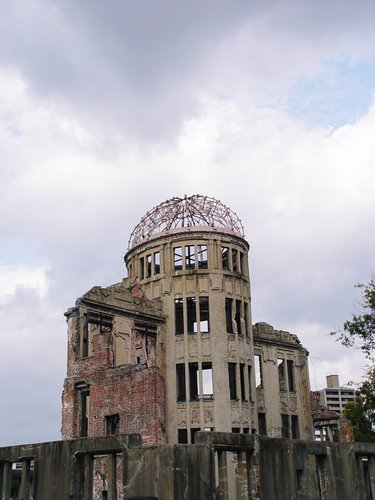
As reported mentioned in passing before, tensions between Russia and Georgia have been escalating. And now Russian forces have entered Georgia and have begun battling Georgian soldiers.
Background

In 1801, Georgia and Ossetia were annexed by the Russian Empire. After the Russian Revolution, Ossetia was divided; South Ossetia became part of the Georgian Soviet Socialist Republic, while North Ossetia became part of the Russian SSR.
As the USSR was disintegrating in the late 80's, Abkhazia and South Ossetia were granted autonomy by the Georgian Supreme Soviet. Several moves by the Georgian government afterward (declaring Georgian the national language, declaring independence from the USSR, reimplementing the pre-Soviet Constitution) were interpreted by the pro-Russian Abkhaz and Ossetians as threats to their autonomy. The Abkhaz and Ossetians declared independence, and violence flared until cease-fires in 1992 in Ossetia and '93 in Abkhazia.
From 1993 to 2003, the Georgians, Abkhaz, and Ossetians lived in a shallow peace. Under Georgian President Eduard Shevardnadze, the Abkhaz and Ossetians were mostly left to govern their territory with little interference from Tbilisi. Peacekeeping forces consisting of Georgians, Russians, and Abkhaz/Ossetians were stationed in Abkhazia and S. Ossetia. However, no progress was made to secure a more lasting solution.
For more on Abkhazia and South Ossetia (BBC & Wikipedia)
Escalation to War
Current Georgian President Mikheil Saakashvili was elected in 2004 after running on a platform of reasserting Georgia's authority over the breakaway regions. Tensions between Georgia and the separatists increased.

On November 12, 2006, the South Ossetian and Georgian governments held simultaneous referenda regarding S. Ossetian independence. Ossetians voted overwhelmingly to become independent, while the region's Georgian population voted to remain with the Georgian government.
The Russian government has meanwhile increased its support for the separatist cause. The Abkhaz and Ossetians have historically favored Russian authority, while Russian hegemony seems to make Georgians bristle. The Russians supplied arms to the Abkhaz and Ossetians during the early-90's conflicts. Many Abkhaz and S. Ossetians have Russian passports and are considered Russian citizens, and trade there is largely conducted in the Russian ruble.
Casus Belli
On August 8, 2008, the Georgian army clashed with S. Ossetian separatists in and around the S. Ossetian capital of Tskhinvali. During the fighting, ten Russian peacekeepers were killed. Russia immediately moved troops and tanks into S. Ossetia. Russian planes conducted airstrikes on targets as far south as Tbilisi. Russian President Dmitri Medvedev explained, "I must protect the life and dignity of Russian citizens wherever they are. We will not allow their deaths to go unpunished. Those responsible will receive a deserved punishment." By August 9, Russian forces had taken control of Tskhinvali.
Georgia has requested that half of its contingent in Iraq be sent home.

Abkhaz separatists have sent troops into S. Ossetia and have taken the opportunity to try and drive out the last remaining Georgian troops in Abkhazia.
Tens of thousands of civilians who lived in South Ossetia have fled the region, either into Russian North Ossetia or deeper into Georgia. There were reports on Friday that the Georgian army was helping civilians evacuate.
And today, the Georgian army has declared its withdrawal from S. Ossetia and a cease-fire. However, Russian officials have said that a cease-fire is dependent on a complete withdrawal of Georgian troops from S. Ossetia and that has not yet happened. Russian planes continue to strike Georgian targets.
For a day-by-day recount of the Ossetian conflict.











